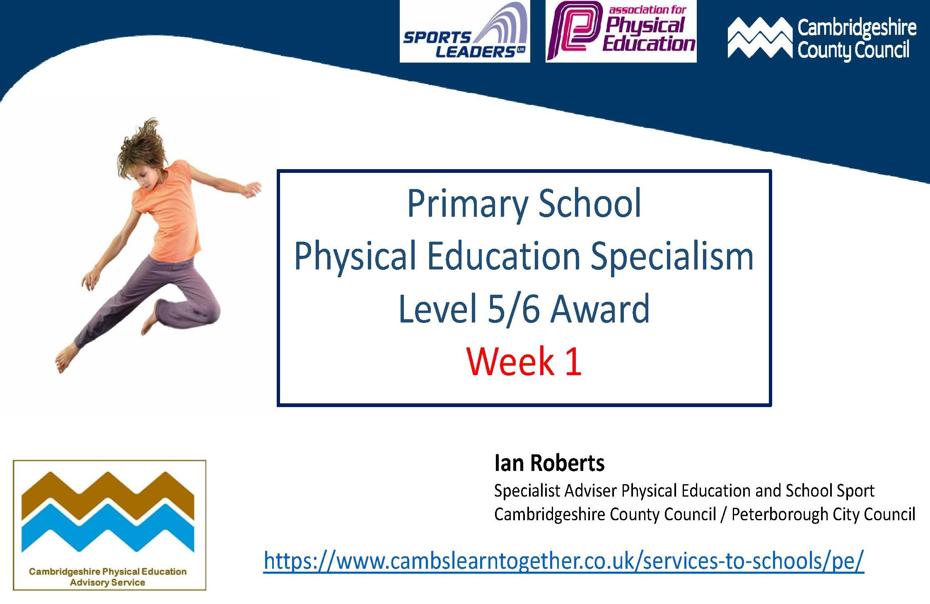
Learning Episode Two
Current developments
Reflective ActivityWhat do you think are the big issues that have influenced the Primary PE landscape in the last 8 years? |
- Increased status of PE in Primary curriculum
- Post-Olympic legacy
- Primary PE funding
- New National Curriculum for PE
- Focus on swimming
- Focus on engaging in competition and link to healthy lifestyles
Barriers facing High Quality PE
What barriers / issues are your impacting on PE in your school setting?
- Limited opportunities to develop the basics
- Limited resources
- Activity and sport specific at an early age
- Limited range of activities taught
- Leads to early specialisation
- Taught as units : fragmented & compartmentalised
- Experiences often unrelated, no transfer of learning
- Problem of proficiency barrier
Lies, Damned Lies and Statistics
Current research
1/3 of children leave primary school with negative feelings about physical activity
2/5 teachers say students don’t enjoy PE & say that 40% of 11yr olds lack foundation movement skills
32% of teachers lack confidence to teach PE
28% of teachers feel inadequately qualified to teach PE
53% of teachers want more CPD
88% of teachers regard PE as just as important as the other subjects taught
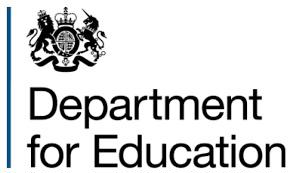
Reform of the National Curriculum in England
“The new PE curriculum will put competitive sport at the heart of school life, ending the damaging ‘prizes for all’ culture.
As well as helping us to unearth the next Jack Wilshere, Rebecca Adlington or Stuart Broad, this will build character, embed values of fairness and respect, and give all children the opportunities they need to be fit and healthy.”
- Academies and Free-schools do not have to follow the National Curriculum, but they most show evidence of a broad and balanced curriculum
- It was introduced for September 2014, and there will be no mandate to assess against levels!
Purpose of study
A high-quality physical education curriculum inspires all pupils to succeed and excel in competitive sport and other physically-demanding activities. It should provide opportunities for pupils to become physically confident in a way which supports their health and fitness. Opportunities to compete in sport and other activities build character and help to embed values such as fairness and respect.
The National Curriculum for Physical Education states that its aims are to ensure that all pupils:
- Develop competence to excel in a broad range of physical activities
- Are physically active for sustained periods of time
- Engage in competitive sports and activities
- Lead healthy, active lifestyles
Headlines
- The NCPE is very SLIM and sets out essential knowledge;
- Schools will be left to personalise including teaching approaches, time spent, coverage etc;
- Academies: freedoms to teach but not necessarily the NC. DfE believe that if the NCPE is GOOD, Academies will choose to teach it!
- The NCPE will deliver the MINIMUM that should be taught;
- No specified activities except for swimming;
- Assessment? Bespoke to the needs of the school
REFLECTIVE ACTIVITYThe National Curriculum for PE
|
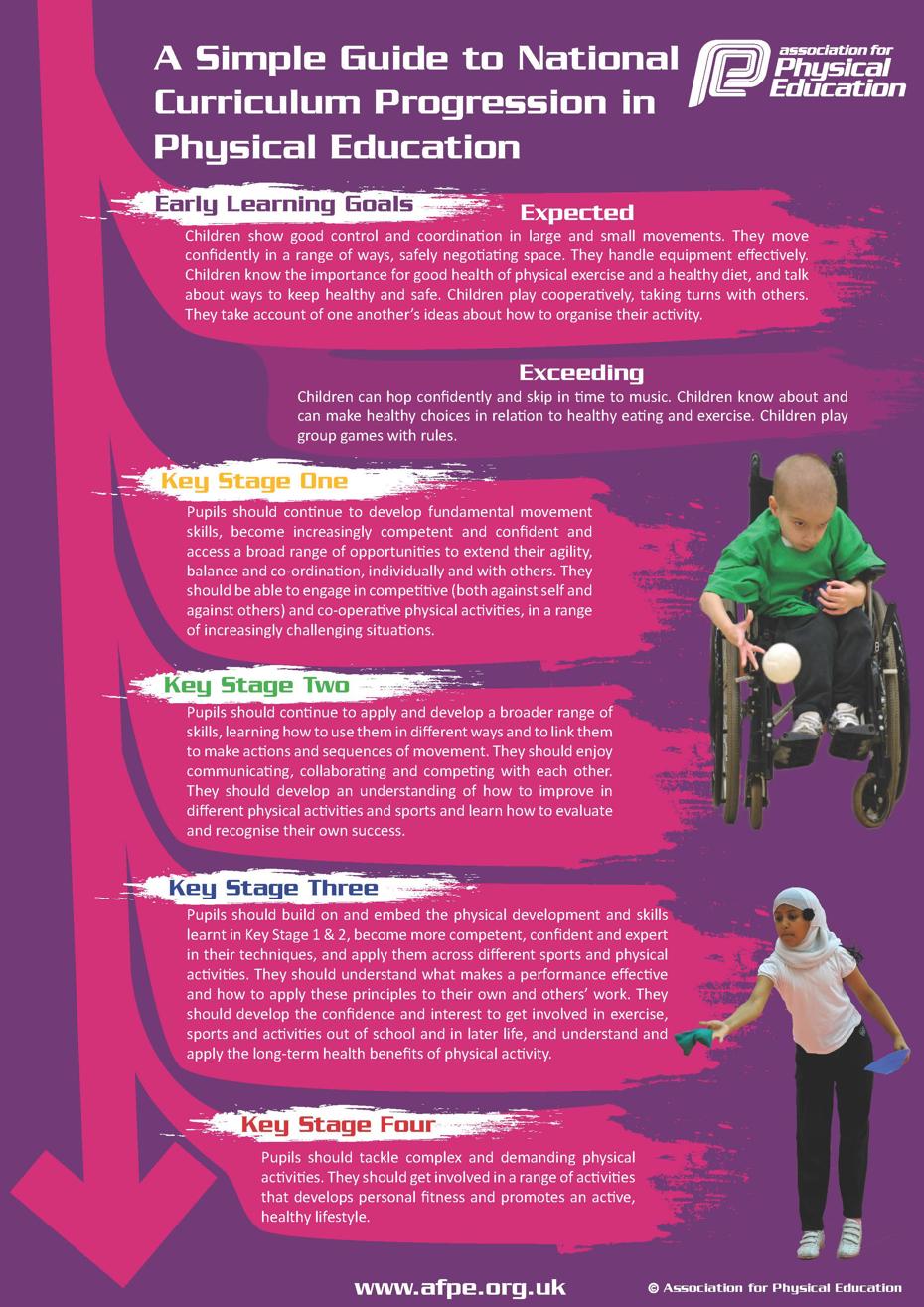
Statutory framework for the early years foundation stage
Physical Development:
Moving and handling
Physical Development (PD) is one of the three prime areas of learning in the EYFS framework, the other two being Personal, Social and Emotional Development (PSED) and Communication and Language (CL).
These three areas are recognised as prime because they form the basis of all other aspects of young children’s learning and development.
The three prime areas are regarded as particularly important for inspiring young children’s curiosity and enthusiasm, laying the foundations for future success in all aspects of life and education.
The revised EYFS framework includes the mention of the Chief Medical Officers’ Guidelines for physical activity; this blog explores what are these guidelines are, why they are they important, and what they mean for early years practitioners.
Evidence suggests that being physically active in the early years can:
- support brain development
- help develop social skills and emotional wellbeing
- enhance bone health and muscular development and
- give children the skills and confidence they need to continue and active lifestyle into childhood and beyond.
There is also concern among teachers about significant numbers of children arriving at school without some of the physical skills needed to undertake tasks such as holding a pencil or sitting upright. Physical activity can help to develop the coordination, strength and manipulation skills needed for skills such as these.
Early years practitioners have a key role in helping young children develop a life-long love of activity but may feel they lack in information, confidence or training on how to build activity into the childcare setting.
Key Stage One Foundation Physical Education
Pupils should develop core movement, become increasingly competent and confident and access a broad range of opportunities to extend their agility, balance and co- ordination, individually and with others
Pupils should be taught to:
- master basic movements such as running, jumping, throwing, catching, as well as developing balance, agility and co-ordination
- participate in team games, developing simple tactics for attacking and defending
- perform dances using simple movement patterns.
Key Stage Two ‘Formative’ Physical Education
Pupils should continue to implement and develop a broader range of skills, learning how to use them in different ways and to link them to make actions and sequences of movement
Pupils should be taught to:
- use running, jumping, catching and throwing in isolation and in combination
- play competitive games, modified where appropriate
- develop flexibility, strength, technique, control and balance
- perform dances using a range of movement patterns
- take part in outdoor and adventurous activity challenges
- compare their performances with previous ones
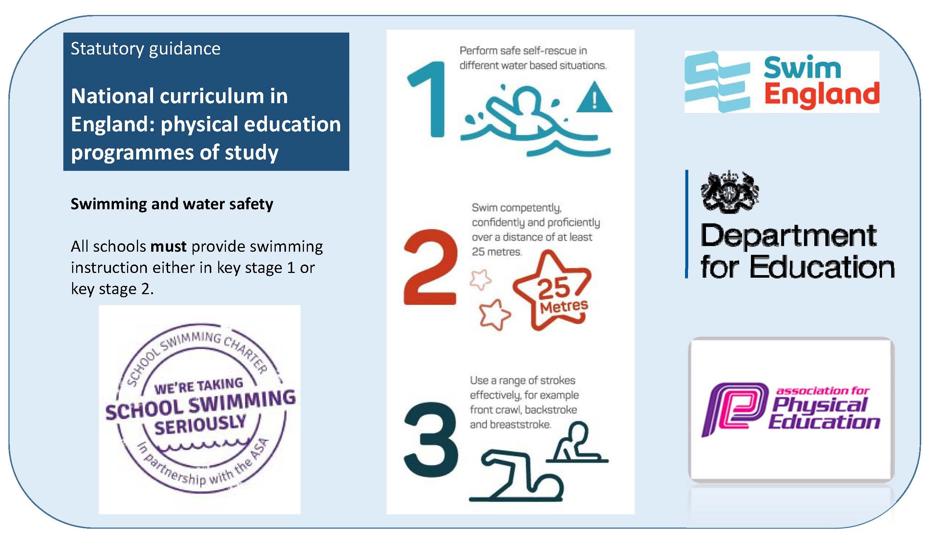
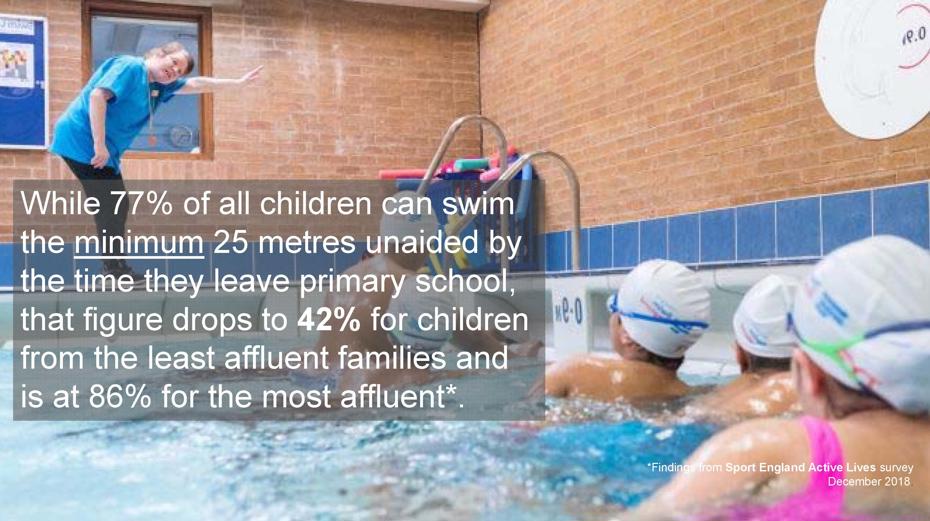
REFLECTIVE ACTIVITYQuestion What do you consider should be the essential elements of the Programme of Study for physical education (PE)? What factors in your school or context will impact upon any changes you make to your curriculum? |
Summary
- NC is a minimum requirement
- Competition never disappeared in the NC - it was always there
- Have a broader emphasis
- Interpret competition in it’s widest context, self, pairs, wider team
- Importance of teaching

